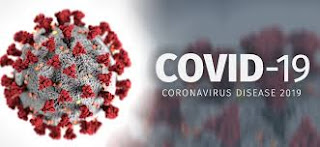Life doesn't have to be a "zero sum game"
We have been taught that life is like sharing a cake. When one party gets a larger slice, the others get less. For one team to win the other has to lose.
In game theory, this is referred to as a "zero-sum" game.
In game theory, this is referred to as a "zero-sum" game.
Our society has been structured on the premise that this is true about all things. Both the "haves" and the "have not" both accept this without question. All that matters is to end up on top. The growing divide between the rich and poor has led to them both exist in the same space, living totally different lives. They might as well be from different planets.
We don't really have a problem with this as it apparently gives the poor hope and something to aspire towards. And every now and then one of them breaks through and makes it to the other side. This is rare, but the fact that it happens gives all the billions of starving poor something to hold onto, in their wretched lives.
As the divide widens, the rich develop a phobia of falling from grace and ending up in the trenches. This drives them to make more profit to cement their position and this, again, this widens the gap.
If one must eat, the other has to starve. Zero sum game.
The truth, however, is that our society can be realigned to a different premise.
The more a farmer succeeds, the more food he produces, and by inference, more people he can fed.
We currently can't have this as the price would drop and the farmer would not be able to buy that villa in the south of France.
Our current system dumps crops when there is an abundance, to maintain the profits.
Why would the farmer produce more food if it will result in a drop in food prices? He could sell 2 tons at a higher price and earn as much as he would selling 20 tons at a lower price. Because if he didn't drop his price and produce, his competitor would. So he grows 20 tons and employs 10 times more laborers and feeds the world. He doesn't have a cartel or milk board that is able to manipulate the prices. And his farm is not the only producer in the region.
Cartels and monopoly are the two reasons that the poor don't have food.
This is all an oversimplification, all theories that try to explain everything, usually are. There is no one size fits all explanation for how we got where we are. We can sit back and say that the situation is much too complex to attempt to address, and simply go on with our lives, or we can find ways to shift our lives enough to put us on the path that leads to repair.
The question is, do we really want to fix society.?
Those of us who are fortunate to belong the group who "have" would need to give up much in order that that the many "have nots" may eat.
The question is, do we really want to fix society.?
Those of us who are fortunate to belong the group who "have" would need to give up much in order that that the many "have nots" may eat.
This is that zero sum game theory again. This is clearly the one thing that stands in the way of healing the earth.
If we are poor, we don't have the luxury of engaging in these academic discourse. When one is privileged, one wants to protect that position and privilege, and hold onto the wealth that gives us that privilege. Any talk about addressing the needs of the poor must be restricted to small carefully planned acts of charity. Too small to change the lives of the poor and just big enough to make us feel smug, with a clear conscience.
What we need to do is invest in businesses that make money and uplift the poor. The more they succeed, the more money it brings in and the better the lives of the poor. Education, health care, and farming would be obvious examples of this. Not the kind of private hospitals designed to offer five star accommodation to the rich but real, good clean well run hospitals, that were affordable.
Some form of socialism is invariably the answer. If one could distribute food, shelter, education, health care and utilities to the masses and have this exists beyond the reach of corruption, all other systems would fall into place.
So maybe the real enemy here is corruption.
What we need to do is invest in businesses that make money and uplift the poor. The more they succeed, the more money it brings in and the better the lives of the poor. Education, health care, and farming would be obvious examples of this. Not the kind of private hospitals designed to offer five star accommodation to the rich but real, good clean well run hospitals, that were affordable.
Some form of socialism is invariably the answer. If one could distribute food, shelter, education, health care and utilities to the masses and have this exists beyond the reach of corruption, all other systems would fall into place.
So maybe the real enemy here is corruption.
And if it can be curbed, maybe life doesn't have to be a zero sum game. And alternative theories could be explored.
All we need to do is solve corruption, and the world could/would be healed.
2015-9-2

Comments